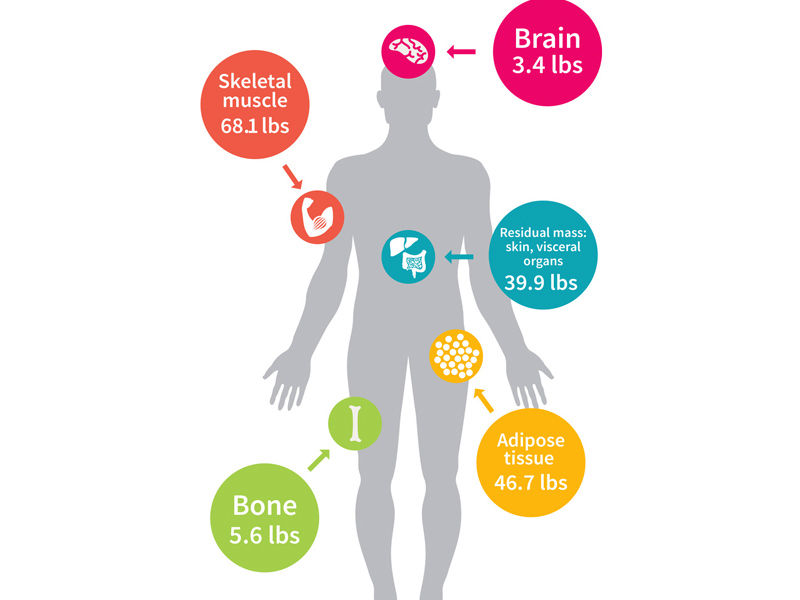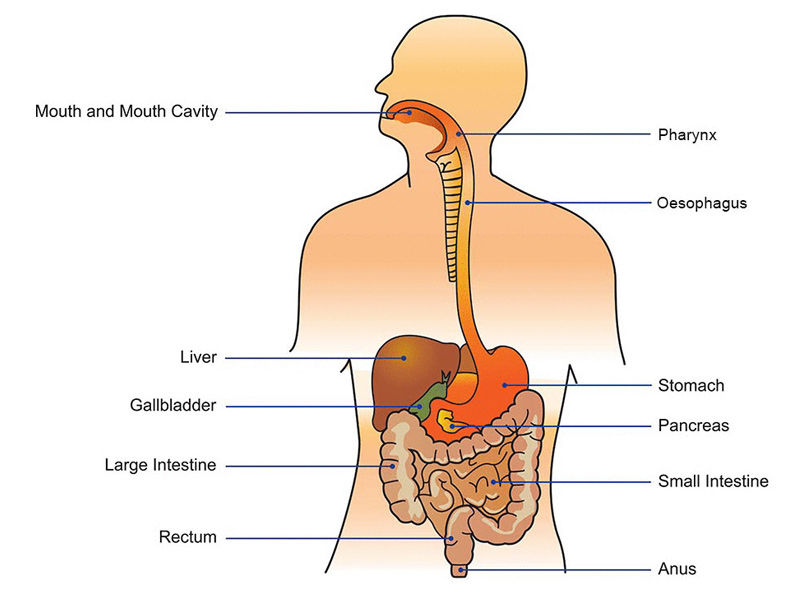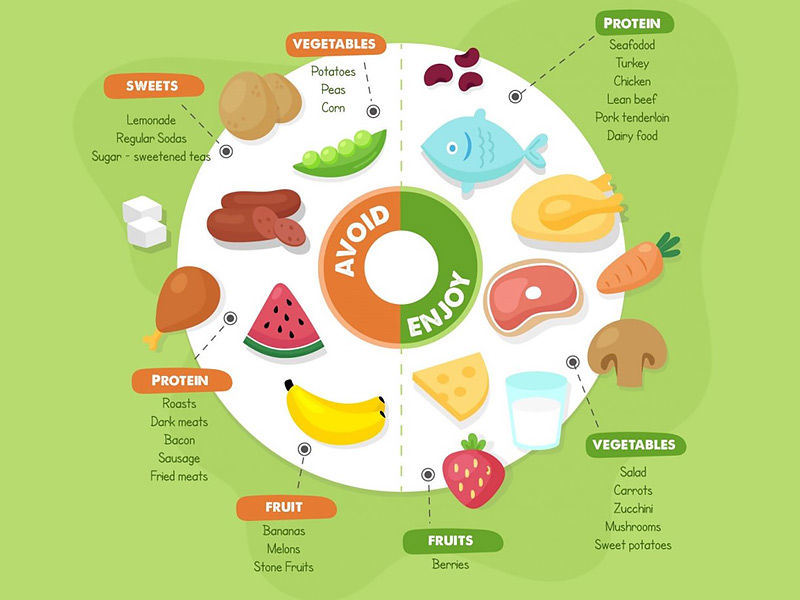When and where we eat, mindful eating puts mindfulness on the menu. It tries to transform our connection with food by emphasizing the how and why of eating, fostering a more holistic point of view, in addition to making us more conscious of what we consume.
Finally, we will have a greater grasp of what foods nourish us and what foods help us stay well, while also inspiring a deeper appreciation for every meal, every mouthful, and every component.
Use your senses.
When was the last time you actually focused on what you were eating – when you truly relished the culinary experience? We frequently eat on autopilot, chowing down a meal while our attention is diverted to the TV, the screen of our devices, a book, or a daydream.
Mindfulness enables us to set aside our distractions and focus solely on our food and our fellow diners. As a result, we begin to take our time while eating. We savor the flavors, scents, and textures when we eat more slowly. We rediscover our senses.

We cease getting buried in the thinking mind and become less caught up in whatever difficult feelings we may have around food when we direct our attention to the complete experience of eating. Simply put, we allow ourselves to rediscover the pleasure of eating.
No more limitations.
To be clear, mindful eating is not a diet in and of itself. There will be no extreme cleanses, no eliminating specific foods, no cleaning out your cupboards, no fads, and no quick cures. Attentive eating can be used as a framework to assist guide more mindful food choices that may contribute to weight loss; however, it’s important to note that every time we choose food based on a certain outcome, we are not eating consciously – we are eating as a means to an end, which can be self-defeating.
Mindful eating just asks us to be present when preparing or eating, allowing us to taste our meal without judgment, guilt, worry, or inner criticism. This method entails spending less time thinking about your weight and the stories that surround it. People who practice mindful eating learn to find their ideal weight on their own.

Traditional diet culture contributes to much of our eating stress by imposing a great deal of pressure, intensity, and incorrect expectations. As a result, many of us regard eating as a reward or punishment. It’s why we believe we “deserve” a particular bite, snack, or teaspoon of something and consider it a “reward,” as if we were a well-behaved puppy or child. People who are concerned with being skinny may undereat and repress sensations of hunger, whereas overeaters may ignore feelings of fullness.
Furthermore, when people internalize dieting ideas—buying into marketing that implies reducing weight is as simple as 1-2-3—pressures and emotions are increased. Mindful eating attempts to reverse such thinking by urging us to abandon the typical all-or-nothing approach and instead eat by our natural body weight, rather than the bodyweight recommended by magazine images and media-fueled pressure. There is no planning or calorie counting. We’re just trying to be attentive.

When we are more conscious, our minds are calmer; when our minds are calmer, we are less likely to be upset or stressed, or to eat emotionally. We also have more lucidity, which allows us to recognize our eating patterns more clearly, allowing us to make better choices. We are more satisfied with the way we eat when we are calmer and clearer. We’re more sympathetic toward ourselves when we’re calmer, clearer, and more comfortable, so when we lapse or eat emotionally, we’re less self-judgmental.
Bringing awareness to the table means eating in a kinder, gentler manner. The emphasis is not always on modifying the food we eat (though it can be); rather, it is on changing our way of thinking about food.
Pay attention to your instincts.
Being aware of our thoughts and emotions is one thing, but being aware of what’s going on in our stomachs adds a whole new dimension to our awareness.
When we’ve burnt through all of the food in our stomachs and our blood sugar levels drop, our stomachs emit a hormone called ghrelin, which sends a signal to our brain’s “hunger center” to stimulate our appetite. When we’re full, our fat tissues emit a hormone called leptin, which tells our brain that we’re full. Most scientists think that it takes at least 20 minutes for the communication to be received. As a result, the majority of our overeating occurs within that 20-minute timeframe.

We may tune in to our body and become more aware of the sensations that precede this “fullness recognition” in the brain through mindful eating, and we can better measure when we are replete without waiting 20 minutes. We learn to think one step ahead of ourselves.
We don’t perceive such messages since many of us were trained as youngsters to ignore our bodies: “You’re not leaving the table until you finish your plate!” “You can’t be hungry!” or “Are you certain you want seconds?” Our food conditioning begins at a young age. So, when we talk to our own children, we can use these similar cues to teach them to listen to their hunger and fullness states rather than ignore them.
Understanding what your body requires.
Mindfulness, in its broadest definition, entails not only being present but also being interested, with a readiness to investigate how and why we think and feel the way we do — without judgment. This is especially true when it comes to our eating habits.
Consider the following questions that most individuals do not ask themselves: How hungry am I in reality? What does my body require? How satisfied am I halfway through this meal? Is my food being scarfed down or enjoyed? Is it possible that I’m depriving myself of foods I enjoy because I believe they’re “bad”? Is this portion too large or too small?
A 2013 study discovered that people who practiced mindful eating ate smaller portions, which can be beneficial for those trying to lose weight, follow a fitness regimen, or maintain a nutritional balance (though mindful eating does not require small portions — as always, eat whatever size meal is right for your body).

We can also bring awareness to the store and the kitchen. It teaches us not to make decisions based on external thoughts, feelings, or impulses, but rather on our own internal awareness of what our bodies require.
A mind is a strong tool, and when untrained, it is vulnerable to both emotion and habit. We meditate to train the mind – to find the space to make better choices for our general health, rather than for our body form or weight. And the beginning point for that transformation in viewpoint is a simple question: “How do you feel about food?”
Why do we eat the way we do?
Everyone’s connection with food is unique, just as everyone’s bodies are. There is no such thing as a perfect way to eat, just as there is no such thing as a perfect physique. Each of us has unique genetics, metabolisms, interests, and priorities.
Some of us gorge, while others graze. Some people snack, while others eat for consolation. Some people undereat, while others overeat. Some are gym rats obsessed with piling on the pounds, while others are diet junkies obsessed with reducing the pounds. Knowing ourselves and being honest with ourselves can help us understand why we eat the way we do.

Food does not magically appear on the plate or disappear from the shelves. It takes a hand to reach out and select a specific item, and more often than not, that action is based on our emotions and sentiments about food rather than nutritional needs, a diet, or what’s beneficial for our bodies.
The more we observe how those ideas and emotions influence our everyday food intake, the more we see those patterns and how we’ve been conditioned through time. The sooner we notice those early influences, the better equipped we are to determine what and when we eat. What we eat is solely our responsibility, although mindful eating assists us in determining what is appropriate.

Persons who undereat may eat more as a result of this awareness; people who overeat may eat less as a result of this awareness. Others may discover that their eating habits remain consistent while their food-related thinking shifts. In this regard, mindful eating acts as an equalizer, allowing us to find a balance in our relationship with food.
Bringing the issue to the forefront.
We all have our own dietary attitudes and patterns of behavior, whether owing to heredity, situation, or family conditioning. The awareness of those roots lays the groundwork for mindful eating, but the only way to understand our relationship with food is to spend time with it.
Also read: Benefits of Red Wine: Amazing Red Wine perks you didn’t know about
Mindfulness inserts a stop to assist us in becoming more conscious of our own decision-making. It’s almost as if we were slowing down a tape to see our process step by step: the clues, the emotions that arise, and the overall sensory impact of eating. We can only begin to change our behavior or way of thinking about food when we stop seeing this cycle of events.

We are more likely to notice how reactive or impulsive we are at times when we have this observational awareness. This is a skill that mindfulness provides, as it allows us to plan our meal choices ahead of time. We are less likely to feel guilty or ashamed about our balanced choices when we arrange our grocery list, restaurant menu, or kitchen.
We are better equipped to dismiss any concept that some foods are “good” and others “bad” once we can trace back our emotions around food and recognize the dynamics at work. Food is simply food. We can free ourselves from emotions that fuel our behaviors by studying the mind in this way. We don’t have to eat our feelings, and when we do, we learn that we don’t have to beat ourselves up over it.

Consider what it would be like to no longer be guided by our inner conversation when it comes to food. Consider having a more balanced, easygoing attitude, free of the constraints of unhealthy eating habits.
We cultivate a sustainable and balanced attitude to the way we eat and look as we move away from all of the bad food thinking. We basically get to re-educate ourselves. We can finally eat again.
Consider this:
On any given day, how often do you consider food? On your way to work, you might pass by a fruit stand. Or maybe your focus shifts to what you’re going to eat for lunch around mid-morning? Maybe you want a huge, juicy steak for dinner. Perhaps all you can think about on your way home is the luscious avocado on the counter.
None of these sentiments can be blamed on food. Food is merely the object of our desire and attention. It has no power over us on its own. Our emotions, conditioning, and decisions give us power. We’ve unintentionally educated ourselves to listen to voices in our heads, voices from the past, and media messages. We may restrict ourselves because we are preoccupied with being skinny, or we may eat everything on our plates because some adult told us to.
There can be no change unless we comprehend the thoughts and feelings that underpin our connection with food. One of the most eye-opening aspects of mindful eating is how much we are influenced by our thoughts and feelings. Fuel is food.

It is necessary for our survival. When we gain control of our thoughts and emotions about food, we weaken its hold on us and learn not to judge ourselves so severely. We recognize that much of our behavior is controlled by our minds and that we can get to a point where food isn’t such a source of worry.
Mindful eating is not a new concept. It’s a method that has been tried, tested, perfected, and used by so many people over time in every country and with every diet.

























